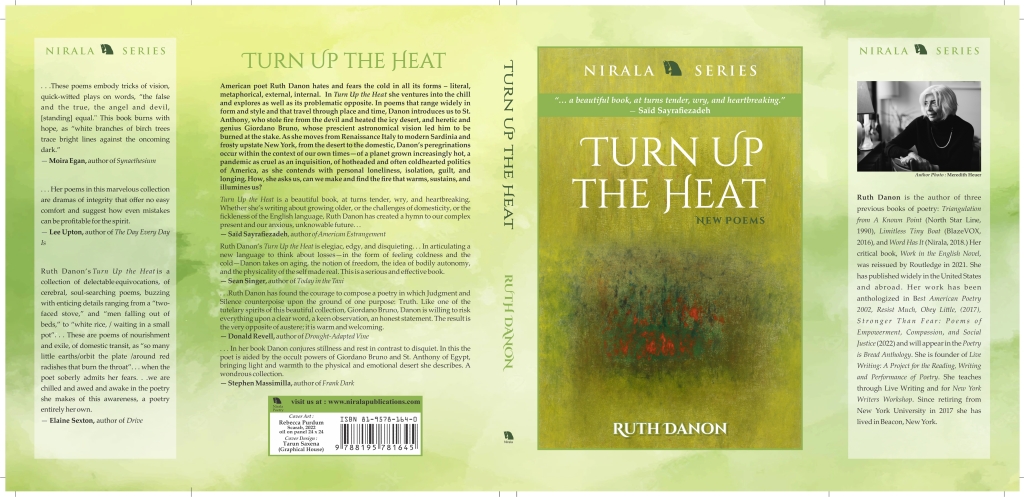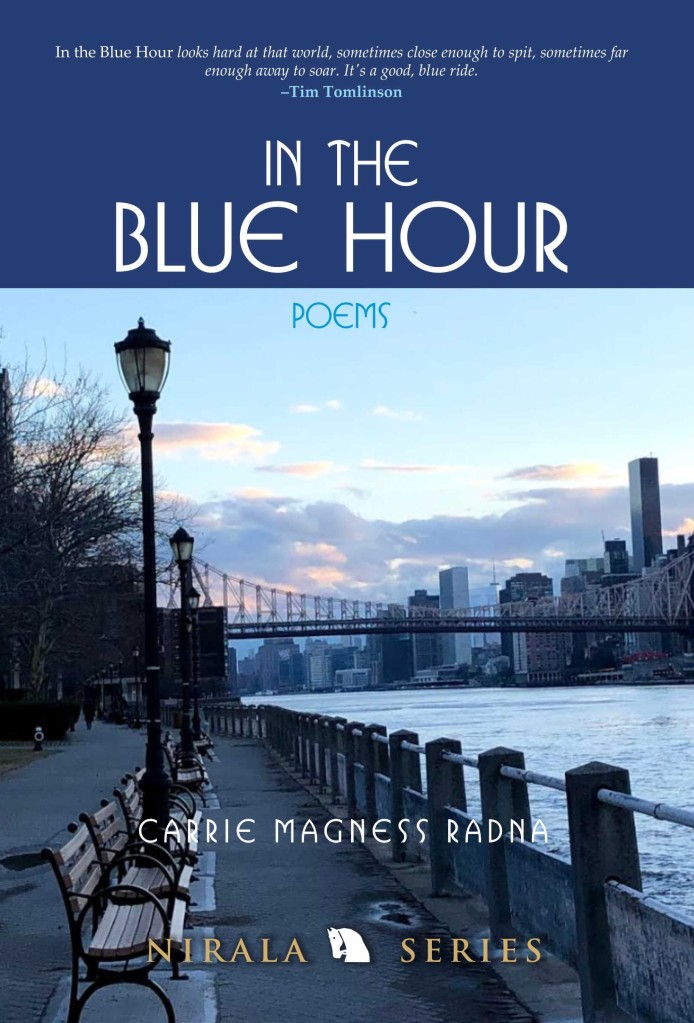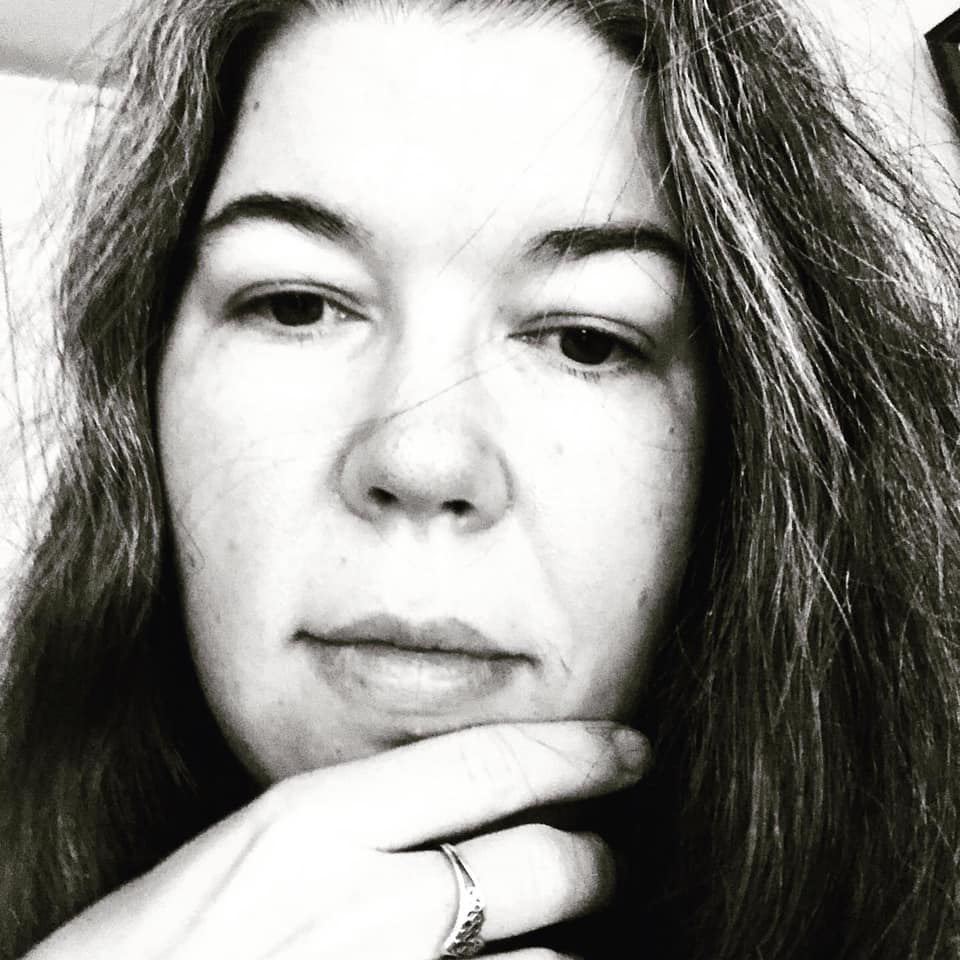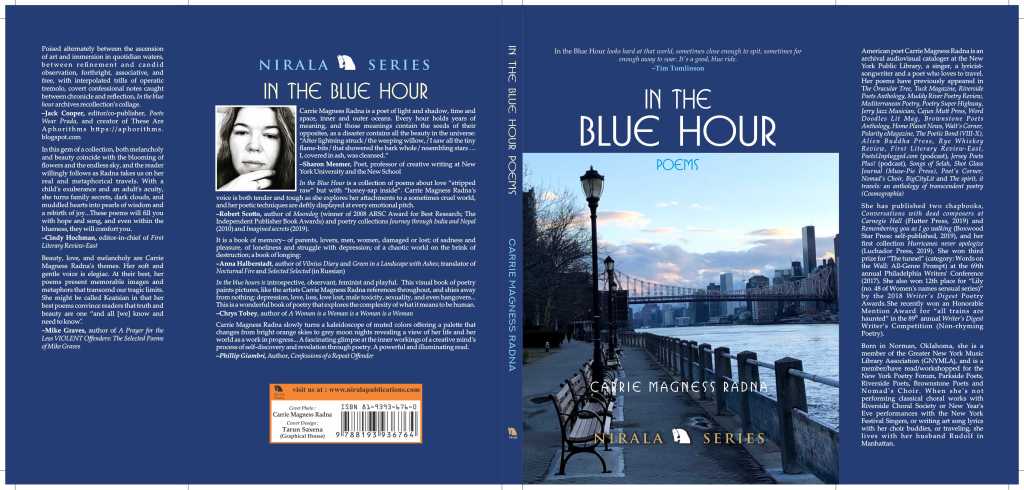“… a beautiful book, at turns tender, wry, and heartbreaking.”
— Saïd Sayrafiezadeh
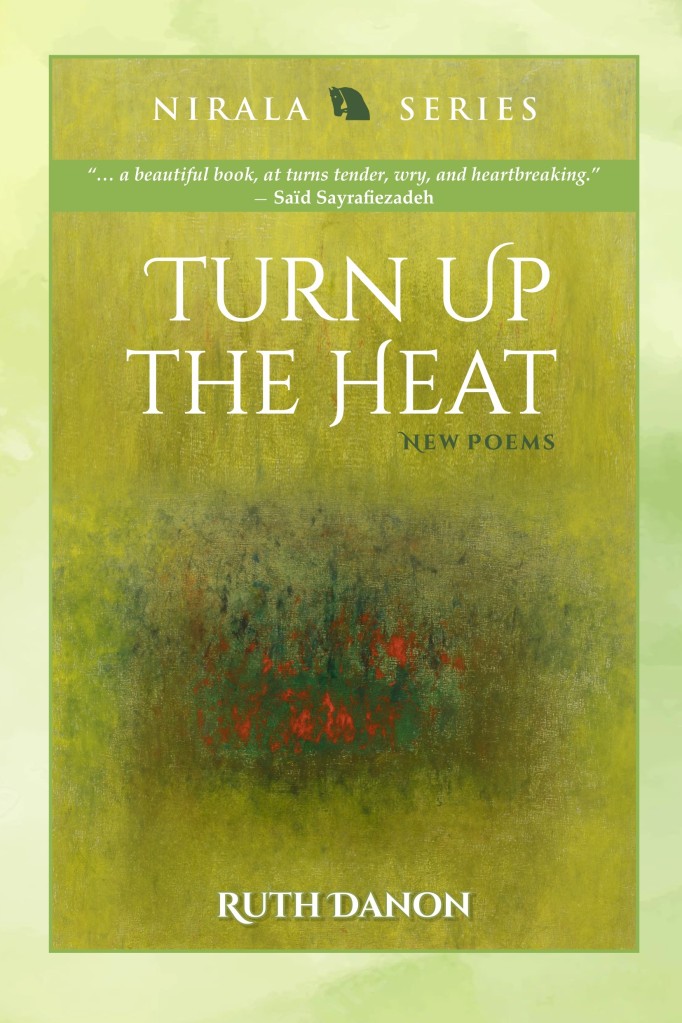
Turn Up the Heat: New Poems by Ruth Danon ISBN: 978-81-957816-4-5 pp84 2023
American poet Ruth Danon hates and fears the cold in all its forms – literal, metaphorical, external, internal. In Turn Up the Heat she ventures into the chill and explores as well as its problematic opposite. In poems that range widely in form and style and that travel through place and time, Danon introduces us to St. Anthony, who stole fire from the devil and heated the icy desert, and heretic and genius Giordano Bruno, whose prescient astronomical vision led him led him to be burned at the stake. As she moves from Renaissance Italy to modern Sardinia and frosty upstate New York, from the desert to the domestic, Danon’s peregrinations occur within the context of our own times—of a planet grown increasingly hot, a pandemic as cruel as an inquisition, of hotheaded and often coldhearted politics of America, as she contends with personal loneliness, isolation, guilt, and longing. How, she asks us, can we make and find the fire that warms, sustains, and illumines us?
“Turn Up the Heat is a beautiful book, at turns tender, wry, and heartbreaking. Whether she’s writing about growing older, or the challenges of domesticity, or the fickleness of the English language, Ruth Danon has created a hymn to our complex present and our anxious, unknowable future. These poems altered me as I was reading them, and they are going to continue to stay with me for a very long time.
— Saïd Sayrafiezadeh, author of American Estrangement
In her stark and truly remarkable new book, Turn Up the Heat, Ruth Danon reveals just how much is on edge, from the vast, incremental movements of time, space, and the weather to the tiniest fragile tendril or thread. These poems quite sensitively contend with damage, scarring, alarms, ruins, and forces that threaten relationships, desires, and life itself—including the icy threat of aging. Yet, there is mitigation – the happy swerve of an unexpected cat in the continuum. In her book Danon conjures stillness and rest in contrast to disquiet. In this the poet is aided by the occult powers of Giordano Bruno and St. Anthony of Egypt, bringing light and warmth to the physical and emotional desert she describes. A wondrous collection.
—Stephen Massimilla, author of Frank Dark
Ruth Danon’s Turn Up the Heat is elegiac, edgy, and disquieting. The book takes its main threads from St. Anthony, the saint of lost things, and from Giordano Bruno, who was burned alive for believing in a heliocentric solar system. In articulating a new language to think about losses—in the form of feeling coldness and the cold—Danon takes on aging, the notion of freedom, the idea of bodily autonomy, and the physicality of the self-made real. This is a serious and effective book.
—Sean Singer, author of Today in the Taxi
Ruth Danon is a poet keenly aware of the way we construct and destroy the world through language. Like a child playing the Freudian game of fort-da, or the artist Louise Bourgeois “undoing, redoing,” she gives us visions of life stripped down, of moon without sun, then lights small, red heaters. Time and again, wry, and even tragic resignation (“In this desert I give up”) leads surprisingly, often humorously, to an oasis in the quotidian, as in the recurrent image of golden butter gracing dry bread. Collapse actually becomes resurrection: in humble yet fierce, cockeyed and clearsighted celebrations of resilience, the speaker “refuse[s] tragedy . . . easing [her] self into some sort of human compassion,” and the little cat, her sometime avatar, stops the anxious licking that’s laid her bare. Because the poet does not shy from nakedness, darkness and cold, broken glass and ancient graves, Turn Up the Heat earns its epiphanies. You close this visionary book with a sense that things destroyed can also be put back together, that a fine and canny calibration of light in relation to dark may not rescue the planet but could save our souls.
—Natania Rosenfeld, author of The Blue Bed
A work of subtle resistance, Ruth Danon’s Turn Up the Heat is a poetic pilgrimage that travels through the heart of uncertainty to compassionate acceptance of one’s internal universe, the world, and its mysterious ways. Whether addressing a need to not be afraid – of the cold, death, the death of the Earth, or running out of butter – it’s the speaker’s willingness to let herself turn silver and amazed that makes these poems insist and burn. Just as burning is a form of yearning – and yearning akin to ache – Turn Up the Heat, is infused with a wisdom and deep humility that invites you to make do with what you have while staying open to surprise.
— Tina Cane, author of Body of Work and Year of the Murder Hornet
Ruth Danon’s Turn Up the Heat is a collection of delectable equivocations, of cerebral, soul-searching poems, buzzing with enticing details ranging from a “two-faced stove,” and “men falling out of beds,” to “white rice, / waiting in a small pot.” Readers will find themselves, off-kilter, led to puzzling things out, wondering if we, too, may have “gambled on the wrong saint” in this life. These are poems of nourishment and exile, of domestic transit, as “so many little earths/orbit the plate /around red radishes that burn the throat.” That burning and the poet’s fear of cold are recurring tropes, one as fierce and penetrating as Robert Frost’s fire and ice. And when the poet soberly admits her fears, “because my mind is right,” we think of Lowell, with the opposite sentiment. But here, we are chilled, and awed, and awake in the poetry she makes of this awareness, a poetry entirely her own.
— Elaine Sexton, author of Drive
Turn Up the Heat indeed, and learn from this elemental, elegiac collection by Ruth Danon. Follow Danon to a bonfire in Sardegna, which leads to thoughts of the heroic heretic, Giordano Bruno, burned at the stake, and then to our own, contemporary burnings. The heat of desire, the danger of black ice, the sagacity-gathering process of “edging into age.” These poems embody tricks of vision, quick-witted plays on words, “the false and the true, the angel and devil, [standing] equal.” This book burns with hope, as “white branches of birch trees trace bright lines against the oncoming dark.”
— Moira Egan, author of Synæsthesium
Ruth Danon invites us to meet the devil and wonders about the best approach: “will I spit or / will I chew?” What a wild question! She writes poems that reverberate, not zipping up her lines but casting forward and doubling back, pressing hard on each word until our perceptions shift. Her poems in this marvelous collection are dramas of integrity that offer no easy comfort and suggest how even mistakes can be profitable for the spirit. “Yes, I was wanting my own messy future,” she writes. It’s when her poems seem to be especially quiet that you realize she’s imagining how best to sneak up on the devil.
—Lee Upton, author of The Day Every Day Is
For the poet Ruth Danon, “what remains outside of direct perception is a lure of sorts.” And the poems in Turn Up the Heat are themselves lures—dazzlingly structures made of alternating instances of assurance and bewilderment— bidding the reader join in the “hunt for what can’t be seen or known.” And so, we enter a world steeped in metaphysical encounters: “the snow/seemed beyond relief, /clutched in the naked/arms of trees,” “the slow movement of stones/sliding over silt/after we stopped/looking,” “the tree inverted—its branches/become roots.” With the desire to know (and love) “what’s off the edge of the page” comes a certain vulnerability, a “hesitation, /and weariness/in the bones.” But Danon teaches us how to stand “in front of a smudged mirror” fearlessly, she shows us how to become a “student of blush/and rogue streaks in the sky.”
—Barbara Tomash, author of Her Scant State
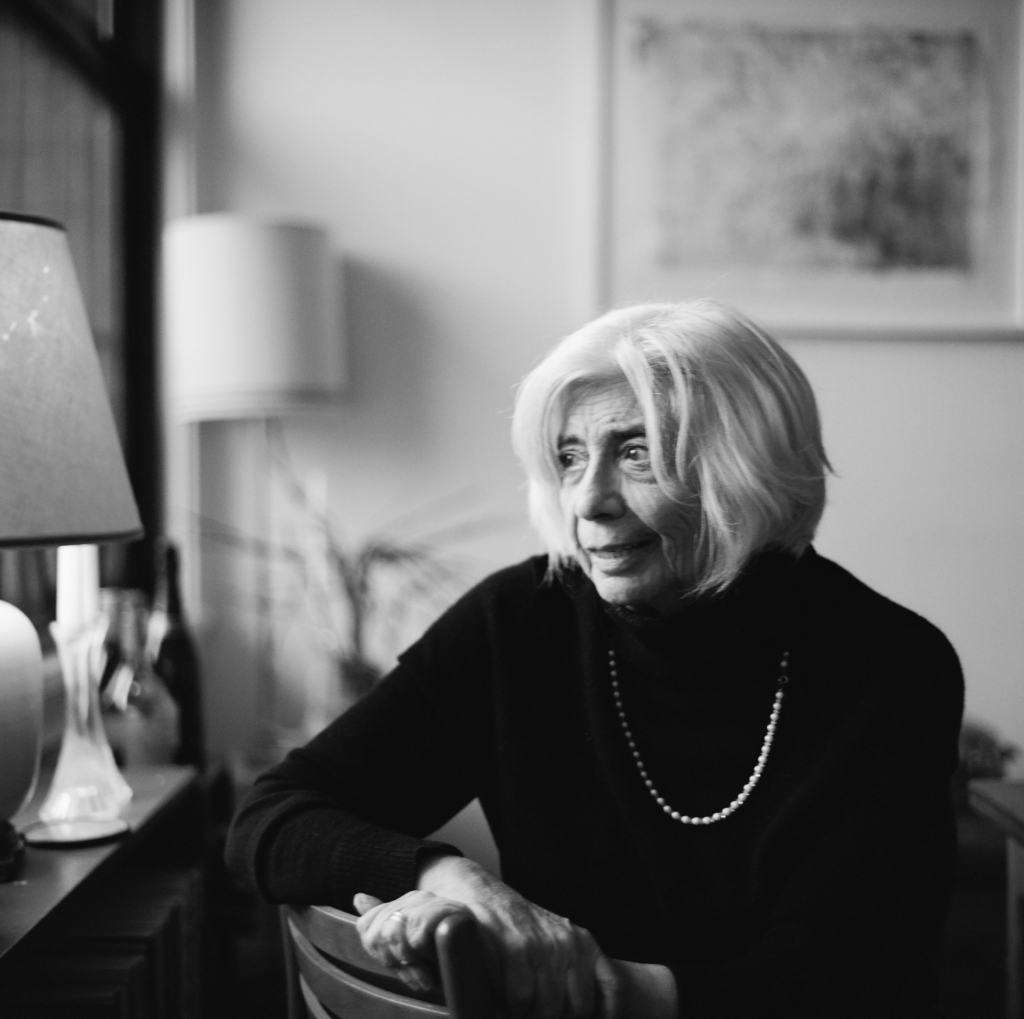
Ruth Danon is a distinguished American poet and scholar. Her previous books include Word Has It (Nirala Series 2018), Limitless Tiny Boat (BlazeVOX, 2015), Triangulation from a Known Point (North Star Line, 1990), a chapbook, Living with the Fireman (Ziesing Brothers, 1980), and a book of literary criticism, Work in the English Novel (Croom-Helm, 1985), which was reissued by Routledge in 2021. Her poetry has appeared in several anthologies including Eternal Snow (Nirala, 2017), Resist Much, Obey Little (Spuyten Duyvil, 2017), Noon: An Anthology of Short Poems (Isobar Press, 2019), CAPS 20 Anthology (CAPS 2020), Stronger than Fear: Poems of Compassion, Empowerment and Social Justice (Cave Moon Press, 2022), and is forthcoming in the Poetry is Bread Anthology (Nirala, 2023).
Her work was selected by Robert Creeley for Best American Poetry, 2002. Her poetry and prose have appeared in Hayden’s Ferry Review, the Florida Review, Tupelo Quarterly, Post Road, Versal, Mead, BOMB, the Paris Review, Fence, the Boston Review, 3rd Bed, Crayon, 2Horatio, Barrow Street, and many other publications in the U.S. and abroad. Danon has been a fellow at the Ragdale Foundation, the Corporation of Yaddo, the Ora Lerman Foundation, and the Virginia Center for Creative Arts. For 23 years she taught in the creative and expository writing programs that she directed for The School of Professional Studies at New York University and was founding Director of their Summer Intensive Creative Writing Workshop. Those workshops ran from 1999 to 2016.
She is the founder of LIVE WRITING: A Project for the Reading, Writing, and Performance of Poetry, which has been operating since 2018. Before the pandemic she curated the Spring Street Reading Series for Atlas Studios in Newburgh. In 2021 she was co-curator of the Newburgh Literary Festival in Newburgh, NY and is currently one of the curators for the newly created Beacon LitFest, to be held in June of 2023.
Currently, she lives in Beacon, NY and teaches through LIVE WRITING and New York Writer’s Workshop.
